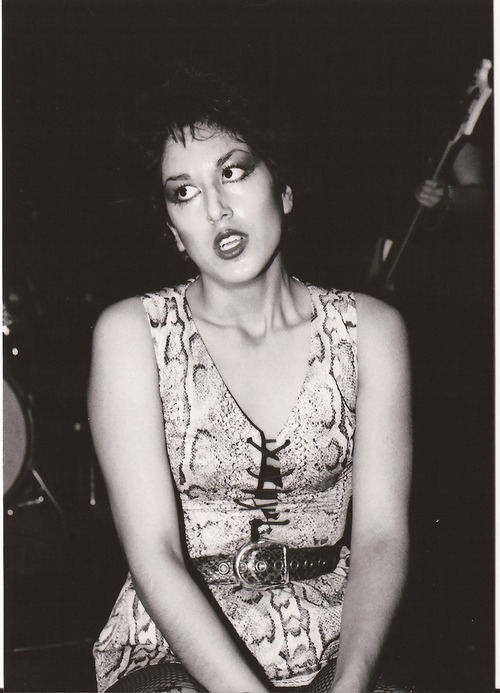Q: Did being a woman of color impact you when you were younger? I mean, people focus on it a lot now.
Alice: I think it matters to me now, but not so much then. I was just me getting on stage! We interacted at a level of creativity - race, gender and your (economic) background didn’t matter. What happened was that years later, people would say to me, “I saw you and I had never seen a Chicana on stage and it inspired me” or “You were a strong woman and it affected me”, you know? There was meaning (to my presence) that I was not aware of. Now I am aware of it. It’s so easy for women and people of color for our histories not to be told. It’s important for me to tell my story because it’s a first hand account of punk rock in L.A. in 1977 and it happens to be told by a woman of color and our histories are generally not there.

I did Ladyfest this year and it was such a pleasant shock to me. Group after group of women or that have strong women in them. People of color, people of all communities, lesbian, gay, bisexual, trans, queer people are represented. For me, that was what the early L.A. punk scene was like, a sampling from everybody. My guitarist Craig Lee, his family was pretty much rich. His mother was a producer and they lived in Beverly Hills. How he got into a band with a Mexican girl from East L.A., you know?! It was the music! It was just creativity that we had in common. You were stripped down to your ideas and it’s not about the other stuff. We bring that other stuff with us, but it’s not what we are exchanging.”
From my interview with Mish Way, read the full interview here:
No comments:
Post a Comment